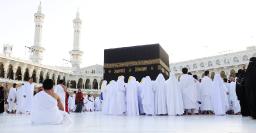

Planning an Umrah tour from the UK often starts with comparing headline prices. But the cheapest-looking package can balloon once you add taxes, surcharges, and on-the-ground expenses. This guide outlines the most common hidden costs, how to spot them before you book, and simple ways to keep your total spend predictable—so you can focus on worship, not surprise bills.
Many packages quote a base fare and tack on:
How to avoid: Ask for a full, itemised invoice that includes the visa fee, service charge, and any courier/postal costs. If you’re handling the application yourself, confirm what’s included in the package price and what isn’t.
Flight price comparisons often skip:
How to avoid: Before booking, compare fare families (Basic/Standard/Flex). Price what you truly need—one checked bag, seats together—and choose the lowest total, not the lowest base fare.
Some hotel quotes exclude:
How to avoid: Ask the agent for the total payable at the hotel desk, including all local taxes. If your flight lands early morning, it’s often cheaper to pre-book the night before than to pay high early check-in fees after a long haul.
A cheaper hotel far from the Haram can look appealing—until you factor:
How to avoid: Price the door-to-Haram distance. A hotel within a 10–12 minute walk can be cheaper overall than a distant bargain when you add daily transport.
Headline packages may exclude:
How to avoid: Confirm whether transfers are private (car/van) or shared (coach), the total cost, and what luggage is included. If you’re using the train, check bag size/weight limits and station-to-hotel transfers at both ends.
City tours can carry:
How to avoid: Get a written quote with route, duration, vehicle size, and all inclusions. For larger groups, a private minivan can be better value than multiple taxis.
You can lose money through:
How to avoid: Use a fee-free travel card, withdraw cash from reputable ATMs, and decline DCC—choose to pay in the local currency. Track rates and convert a portion ahead of time if it’s favourable.
8) Mobile data, roaming & eSIMs
Roaming can be costly, and you’ll likely need data for maps and messaging:
How to avoid: Compare local SIM vs eSIM bundles before departure. Budget enough data for maps, calls, and family updates; buy from official outlets, not ad-hoc kiosks.
Basic policies may exclude:
How to avoid: Read the policy schedule closely. Add pre-existing condition cover if needed and check baggage/equipment limits (wheelchairs, strollers). Keep emergency numbers offline as well.
Heat, long walks, and multiple prayers mean clothes cycle fast:
How to avoid: Pack quick-dry fabrics, a small laundry kit, and unscented travel toiletries. A portable clothesline halves laundry bills over a week.
While tipping isn’t always mandatory, you may feel obliged to tip:
How to avoid: Set a modest tipping budget (e.g., daily small notes). Confirm if service charge is included on restaurant bills to avoid double tipping.
Small items add up:
How to avoid: Bring a compact first-aid kit, hydration salts, and foot care items from the UK. If you anticipate mobility needs, pre-book rentals and get a written rate per hour/day.
Flexible packages and flights may sound safe but can carry:
How to avoid: Clarify exact change/cancel rules in writing: fee amounts, notice periods, and whether a future voucher is offered. Choose free-cancel hotels until flights are confirmed.
Gifts for family and friends brought from Umrah are a joy—but:
How to avoid: Budget a gift allowance and track weight as you go. If you plan heavy items, buy a checked-bag fare upfront—it’s cheaper than paying excess at the counter.
Are cheaper, far hotels ever worth it?
Sometimes for solo travelers. For families or elders, the daily taxi cost and energy drain usually erase the savings.
Is the high-speed train between Makkah and Madinah cheaper than a coach?
Not usually. It’s faster and comfortable; value depends on promotions and how much you value time and easier boarding.
| No comments yet. Be the first. |